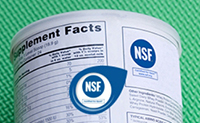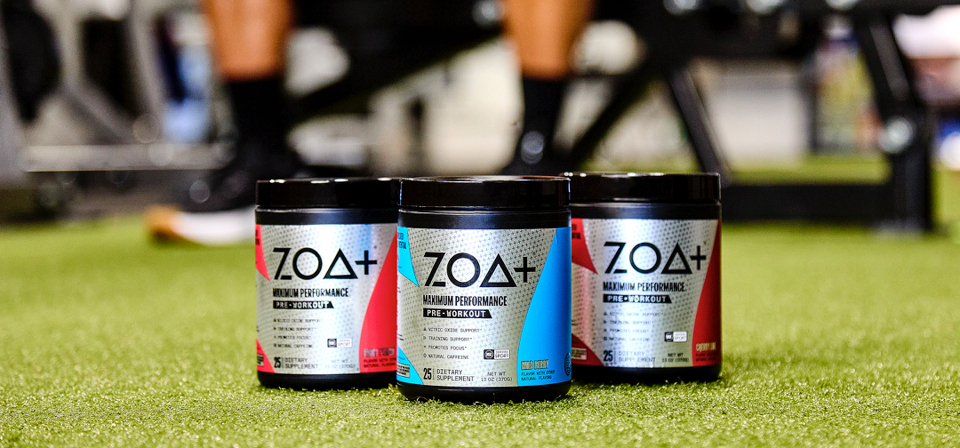Dietary Supplements Claims, Labels and Regulations
If you are concerned about the contents of your vitamins, minerals, herbs, botanicals, protein bars or other supplements, you’re not alone. The dietary supplements industry is continuing to grow due to consumers’ continued interest in health and nutrition. The fact that these products do not receive the same regulation as prescription or over-the-counter drugs can raise questions in the minds of many people. Whether you have questions about how these products are regulated, the scope and benefits of certification or how to read a supplement label, you can find useful information here to help you make an educated decision when shopping for dietary supplements, vitamins, sports supplements or other nutritional products.
Claims
In the U.S., products sold as dietary supplements are not permitted to claim that they can treat, prevent or cure a specific disease or condition. However, they can make other claims on the product label:
Health Claims
Disease or health claims show a link between a food or substance and a disease or health-related condition. An example of this type of claim would be, "calcium and a lower risk of osteoporosis" if a supplement contains sufficient amounts of calcium.
Structure/Function Claims
Structure/function claims refer to the supplement's effect on the body's structure or function, including its overall effect on a person's well-being. Examples of structure/function claims include "Calcium builds strong bones" and "Antioxidants maintain cell integrity".
Nutrient Content Claims
Nutrient content claims describe the level of a nutrient in a food or dietary supplement. For example, a supplement containing at least 200 milligrams (mg) of calcium per serving could carry the claim "high in calcium." A supplement with at least 12 mg per serving of vitamin C could state on its label, "excellent source of vitamin C."
Other Types of Claims
- Outrageous claims. Most of us have seen supplements that promise to help make us thinner, smarter, stronger or faster or to improve our sex life without making any other changes in lifestyle. Just as with other products, if it sounds too good to be true, it probably is.
- “All natural.” Unlike the term “organic,” “all natural” is not an official term that is regulated by the federal government and does not offer any guarantee as to the product’s safety.
- “Pharmaceutical strength.” This is another one to watch out for, as there is no such thing as pharmaceutical strength for over-the-counter supplements.
Labeling

So much information is displayed on the labels of dietary supplements, but what does it mean? Four key label areas are described below.
- Serving size. The manufacturer's suggested serving size is normally stated per tablet, per capsule, per packet or per teaspoonful. Since consuming excessive levels of dietary supplements may have adverse health effects, be sure to follow the serving size instructions indicated on the label.
- International unit (IU). This is a unit of measurement, frequently used for vitamins A and D. Defined individually for each substance, IUs are the quantity of a biologically active substance that produces a particular biological effect.
- MG and MCG. The abbreviation mg stands for milligram, which is one thousandth of a gram, and mcg stands for microgram, which is one-millionth of a gram. These are common units of measurement for minerals and some vitamins, such as vitamin C.
- Daily value (DV). The daily value, or DV, is the average amount of the vitamin or mineral needed to meet the nutritional requirements of a person of at least age four.
Regulations
With so many dietary supplements on the market today, many people wonder if these products are truly regulated and if so, what the regulations cover.
Does the U.S. federal government regulate dietary supplements?
Yes. Congress established the Dietary Supplement Health and Education Act (DSHEA) in 1994 to create a regulatory framework to address the safety and labeling of dietary supplements. More recent regulations require manufacturers to observe Good Manufacturing Practices (GMPs) established for this industry, including ingredient testing.
In contrast to prescription and over-the-counter drugs, dietary supplements covered by this act do not normally need approval from the U.S. Food and Drug Administration (FDA) prior to being marketed. The main exception is for products introducing a new dietary ingredient, where pre-market review for safety data and other information is required.
Does the U.S. federal government regulate the advertising of dietary supplements?
Yes. The Federal Trade Commission (FTC) regulates advertising for supplements and most other products sold to consumers.
Advertising and promotional materials received in the mail are subject to U.S. Postal Inspection Service regulations.
How do regulations for supplements differ from those that cover prescription or over-the-counter drugs?
Dietary supplements are classified under the general category of food products, not drugs.
Before marketing, drugs must undergo clinical studies to determine their effectiveness, safety, possible interactions with other substances and appropriate dosages. The U.S. FDA then reviews the data and determines whether to authorize use of the drugs.
In most cases, the FDA does not test dietary supplements or authorize their use prior to their being marketed. The FDA can order the removal of a dietary supplement from the marketplace, however, if they feel it is unsafe for consumers.
Is there an American National Standard for dietary supplements?
Yes. NSF/ANSI 173: Dietary Supplements is an American National Standard that helps confirm that what's on the label matches what's in the bottle. In addition, testing is conducted to confirm that there are no unsafe levels of contaminants such as heavy metals, pesticides and herbicides in the product.
How NSF Can Help You
Get in touch to find out how we can help you and your business thrive.

What’s New with NSF

2024 GFSI Conference - Meeting the Needs of our Evolving World
March 20, 2024
Dwayne “The Rock” Johnson’s ZOA+ Powder Earns NSF Certified for Sport® Certification
March 4, 2024